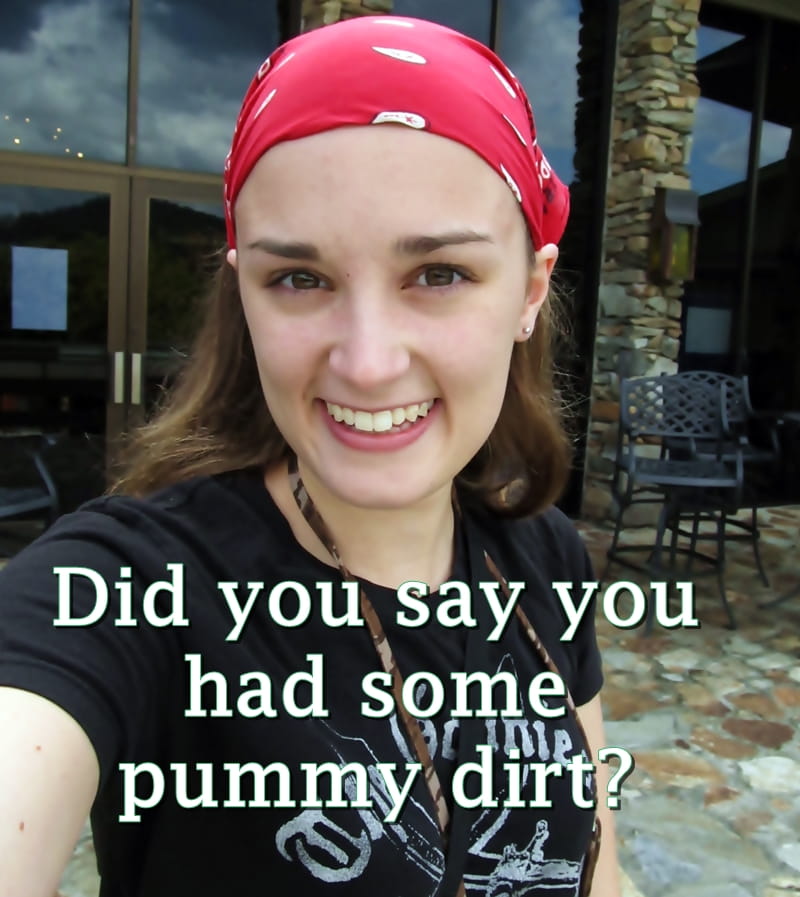
Several folks found Lyndall “Granny” Toothman’s use of the word pummy interesting in my Dandelion Salad at Christmas post.
I looked through all my language dictionaries and found the following entries.
pummies (n): pomace, ground apples, peaches, etc. from which the juice had been pressed. “After they made cider, they throwed the pummies on the ground.”
—”Bits of Mountain Speech” by Paul Fink
pummies n : pomace, residue of sugar cane stalks pressed in a mill
pummy: n : ground apples in cider making
—”The Dixie Dictionary”
—-
I bet Lyndall “Granny” Toothman had experienced cider making and was familiar with the word pummy in relation to apples. I’m guessing the soil they found in the woods was similar in appearance.
Tipper
Subscribe for FREE and get a daily dose of Appalachia in your inbox


My father (in southeastern Ohio) had a cider press with old equipment. Fascinating for a six year old in 1940. Apples fed on to a conveyor outside, then cider bottled, and the apple pummies recycled out the back window. Pummies then went to feed the pigs. Totally useful process.
Apple in the French language is pomme. That connects right to the cider making leavings.
Little if any juice or sugar would be left in the spentings of the mashings left behind. My folk would even boil those to make jellies for eating or doctoring before tossing on the ground to enrich the soil. I guess today we could make organic soaps and such with those pummies
Mommy preferred “stump dirt”. Dirt from where hardwood stumps had rotted away. Pine stumps wouldn’t do but they sometimes yielded rich pine/liter knots/ fat wood.
We used to pile up tobacco stalks to rot so they could be used as fertilizer. They made some fine looking dirt when it was all said and done.
Well isn’t that interesting! I never would have made the connection between “pummy” and the pomace from cidermaking. One year I brought home a couple of big pails of pomace when I bought my year’s cider, thinking the goats would enjoy it. They did eat a bit but maybe it was already starting to turn, because they didn’t eat much and I had to bury the rest in the garden before it could rot. So I guess I made pummy dirt without even knowing it!
In the volcanic Northwest “pummy “ refers to the very fine, powdery pumice dirt (pummy dust) found mostly in the mountains.
Tipper,
I never heard the word “Pummy” before, but we never made molasses either, like Bill Burnett. I have heard “Puney” before, but that shows when you don’t feel good.
When I first got old enough to split cookwood for the kitchen, I put the laurel on the chopblock a little different. I glanced and that sucker hit me on the forehead and that ended my day, to get over it. I learned better. We had a cookstove in the kitchen and an electric stove, but we preferred biscuits be made in the woodstove.
Mama bragged on me, the way I would rick the wood in the woodbox Daddy had made. I never heard her complain, but she had a Stroke when I was about 1 or 2 months old, leaving her Paralyzed in her left side. …Ken
Never heard pummy but yes the meanings of it.
I had a feeling that pummy soil was loose composted dirt. In other words good dirt.
I was very familiar with Pummies from the making of Molasses and seeing Apple Cider made but had never heard of Pummy Dirt.
My dad and family made sorghum back in the 1980s. The sorghum cane was thrown in a sticky pummy pile after going thru the press.
I’ll bet that sticky pile of pummy drew yeller jackets from many miles around!
I knew the word pomace but don’t think I’ve ever used it. I like pummy better.
Last Spring I went over in the holler and got some pummy dirt and planted my strawberries, tomatoes, and mangos in. Mangos is what we used to call sweet peppers.
I never heard the word ‘pummy’ used at all, much less to describe soil. But I still had a sense of what was meant. I think it referred to the dark brown or black ‘humus’ or ‘topsoil’. But more than color, woods topsoil can be loose and have a bead-like structure. Mom used to send us boys to an old sawdust pile and have us dig her dirt for her flower beds. We sifted it with the one-quarter inch mesh ‘hardware cloth’. Boy, that was some kind of dirt and may have been ‘pummy’.
Don’t recall ever hearing that word.
Interesting word and yet very descriptive. I love words